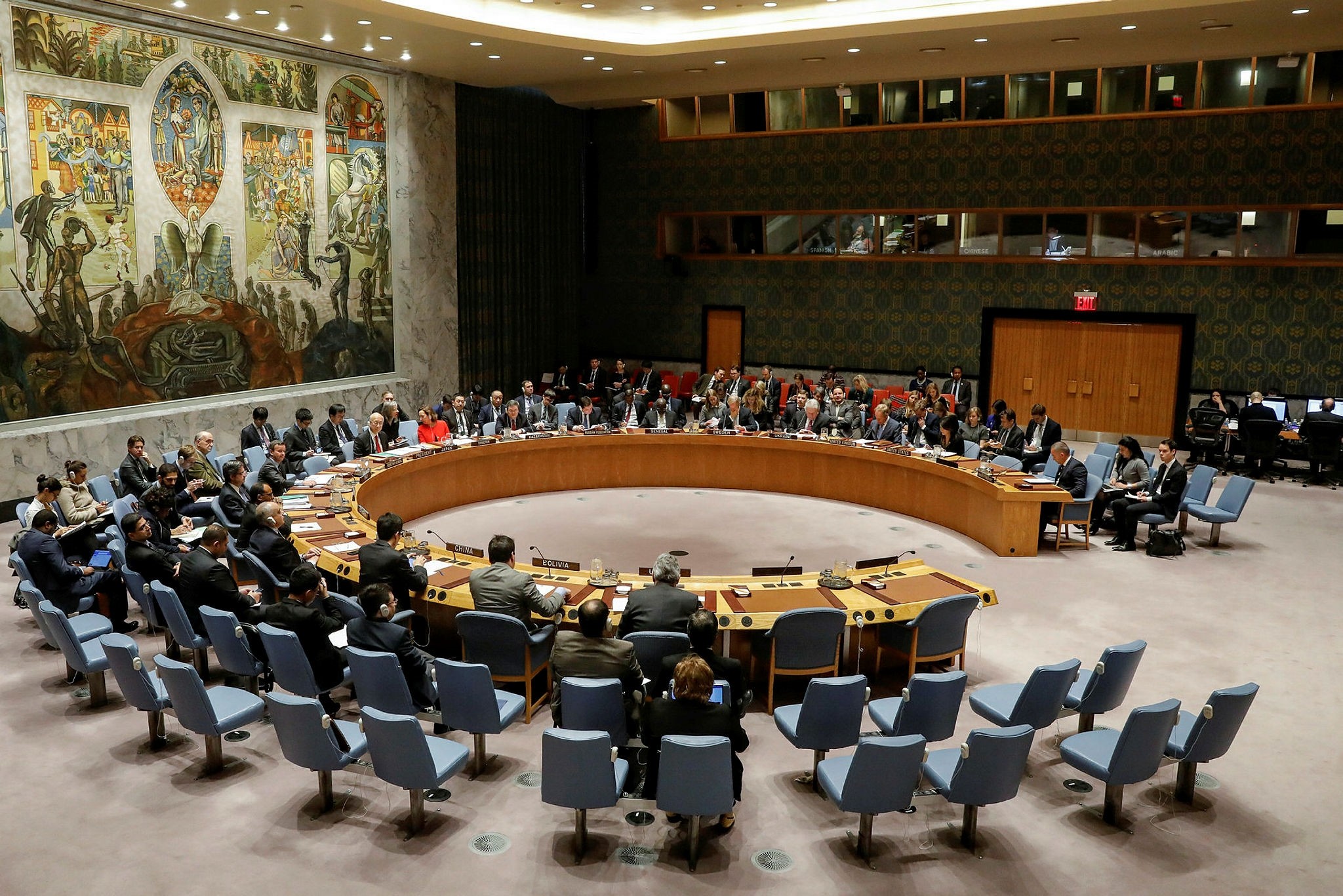
The United States vetoed late Monday a United Nations resolution rejecting President Donald Trump's controversial decision to recognize Jerusalem as Israel's capital.
The Egyptian-sponsored Security Council resolution was approved by the 14 other council members, but was rejected by the United States, who is one of the five permanent members of the UNSC, as expected.
This inequality created by the permanent positions of five members of the Security Council has been frequently voiced by President Recep Tayyip Erdoğan, best by his famous slogan "The world is bigger than five."
Turkey spearheaded efforts for the vote, and it was Egypt that legally requested it on Sunday, a day after it presented the measure.
Arab nations knew in advance that the United States was certain to veto the resolution, but they sought the vote to demonstrate that countries everywhere and even many U.S. allies such as Britain, France and Japan are against Trump's action.
The resolution asserted that "any decisions and actions which purport to have altered, the character, status or demographic composition of the Holy City of Jerusalem [would] have no legal effect, are null and void and must be rescinded in compliance with relevant resolutions of the Security Council."
It "calls upon all States to refrain from the establishment of diplomatic missions in the Holy City of Jerusalem, pursuant to resolution 478 (1980) of the Security Council."
The draft also demanded that all states to comply with Security Council resolutions on Jerusalem, and "not recognize any actions or measures contrary to" them.
Following the voting, U.S. Ambassador Nikki Haley called the resolution "an insult" that won't be forgotten, saying the United Nations forced the U.S. to cast a veto simply because of its right to decide where to put its embassy.
Palestinian foreign minister Riyad al-Maliki also said that Palestinians would call for emergency meeting of the U.N. General Assembly following the veto.
A U.N. Security Council resolution adopted in December last year "underlines that it will not recognize any changes to the 4 June 1967 lines, including with regard to Jerusalem, other than those agreed by the parties through negotiations."
